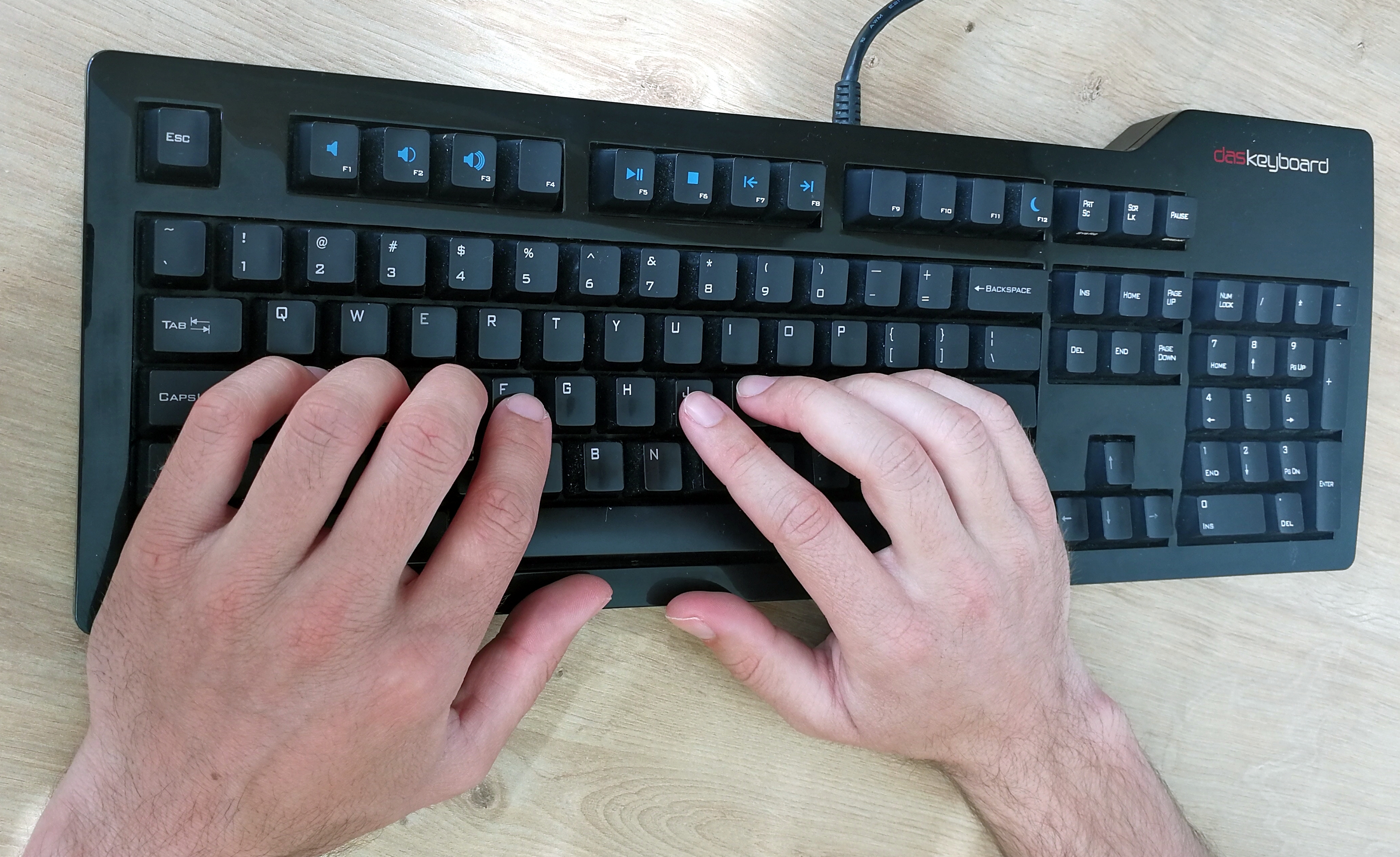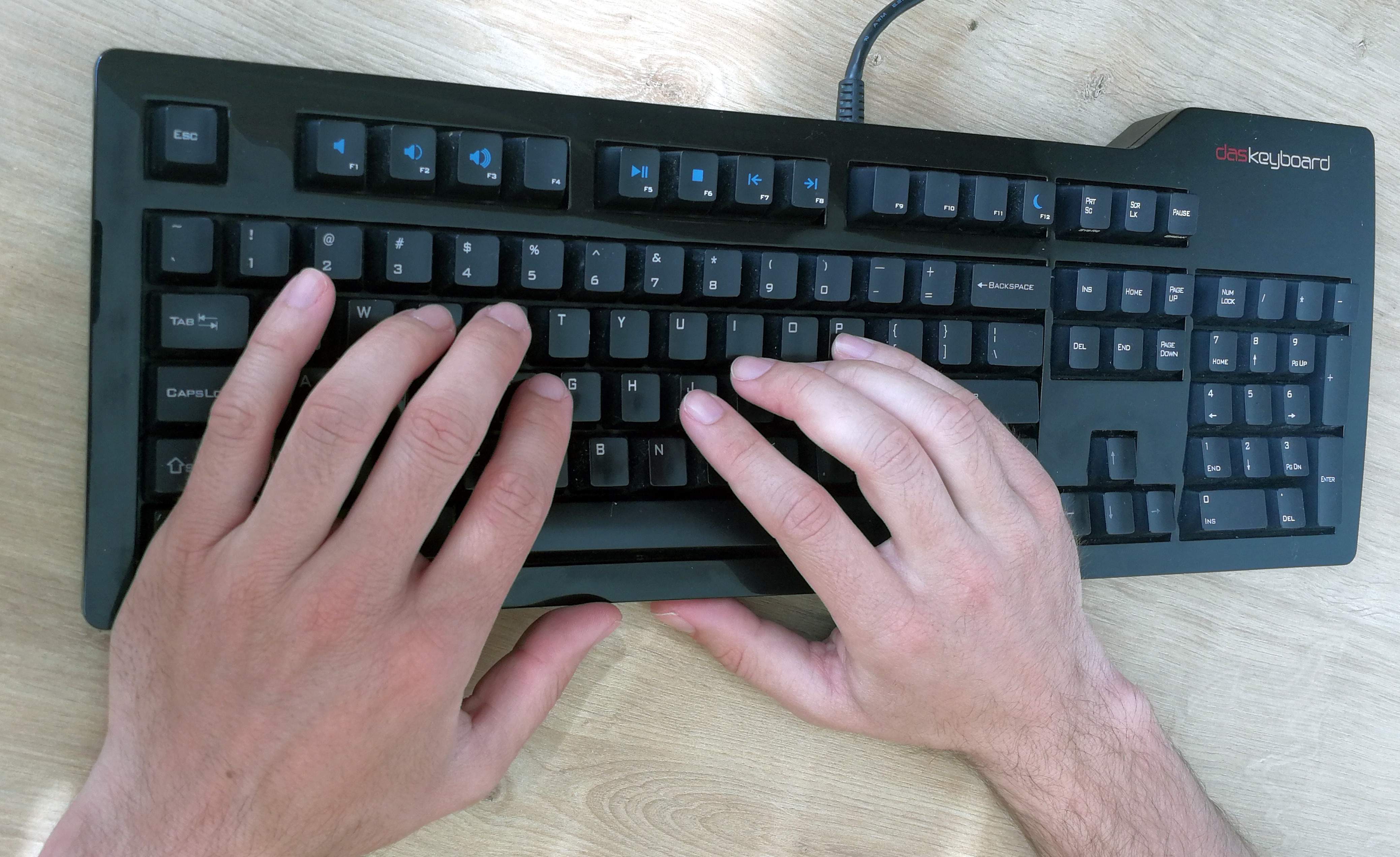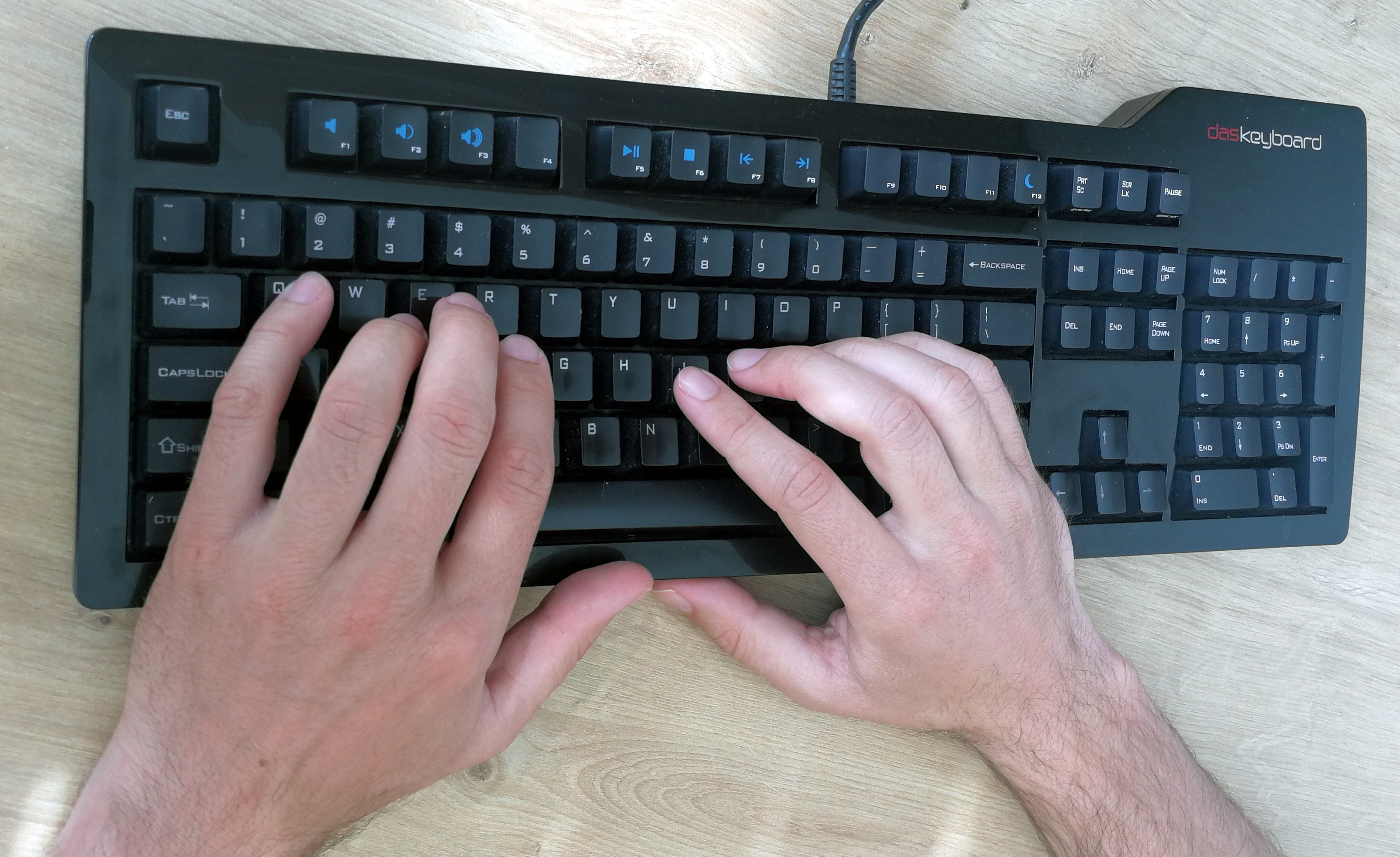Use your palms to press the Control keys in Emacs
I'm not saying anything or pretend to have discovered anything new here. I'm just confirming and trying to convince other Emacs zealots or newbies alike that Xah Lee's ten year old advice to palm-press both Ctrl keys instead of swaping to CapsLock and use your pinky is not only sound but it's one of the best small things I've learned during these years. I cannot even imagine what a living hell my Emacs life would be if not for the pinkie freedom and the ability to use both Ctrl keys at the same time and thus not having the need to use a modal editor, like Vim.
So, normally, you would hold your hands on the home
row. That is, your fingers are on a,
s, d, f and the
j, k, l and ;
keys, respectively.

In this position, which incidentally is the correct position to type anything of
value into a computer, both palms rest naturally on the Control keys. In the
next instance, both Control and the p key are pressed at the same time. This
is the previous-line, a most used command in the Emacs world.

Do you notice any big difference regarding the position of the hands? Notice
the left hand palm is pressed against the Control key. Barely noticeable. Next,
both the Control key and the q key are pressed with the same minimal effort.

Two things can be readliy observed. One, is that both Control keys are
used. When the key to be pressed is on the left side of the keyboard, the right
Control key is used and when the key is on the right, the left Control
key. Secondly, and most important, the hands retain their natural, home row
position and you don't see any finger contortions and bone breaking
athletics. This both increases your typing speed and saves you from RSI.
In the video above, the key combinations used are C-p, C-n, C-g, C-q, C-c
followed by C-TAB, some typing and then
C-m, where C is the Control
key. These are some of the most used commands, typed hundreds of
times daily. Doesn't it look natural and finger-stress free?
Where to start
Start by reading Steve Yegge's rant that Xah Lee also links in his post, if you're somehow not convinced that you should really touch type before ever writing another piece of code. It's about learning how to f*** type and Steve here will yell at you for coming up with excuses for not learning. Really, you have none. Unlike sport coaches, there is now an endless supply of tools that can help you on this journey, and the journey consists in repeating the same patterns over and over again, starting from simple exercises like pressing just a single key, or a random combination of five keys, or ten, but making sure you keep your hands where you're supposed to: on the home row. I've used klavaro, but you can try what suits you best, and I've went from 50-60 words per minute (wpm) to 99 wpm.

I'm still trying to beat the 100 mark. I'm sure that moment will come. How fast can you go? Try it now and then try again in a few months and see the difference.
If you're just starting with Emacs, first learn how to touch type as this will help you regardless if you'll like and continue to use Emacs in the future, and then learn how to use your palm to press the Ctrl keys. I don't think you're getting the full Emacs experience otherway and you'll start swearing at the awkward keyboard shortcuts, start going for the mouse and click the horrible menus and at that moment you'll be 10 times slower at your craft than what Emacs can offer out of the box.